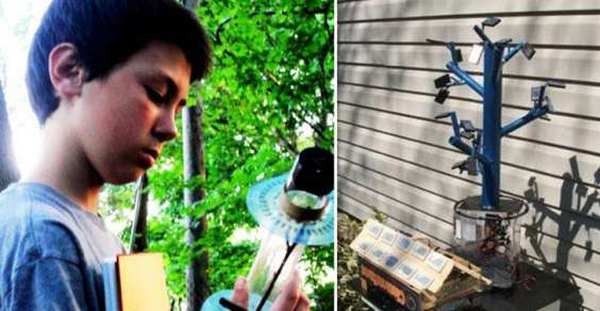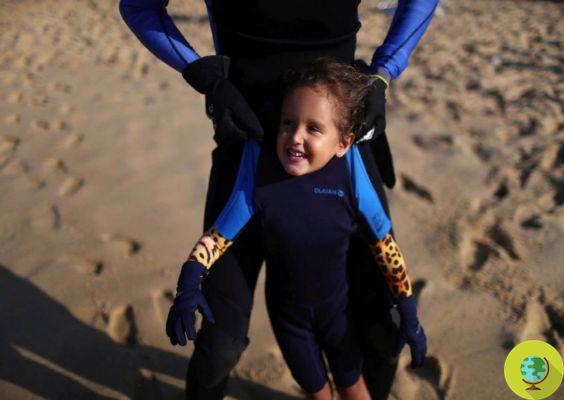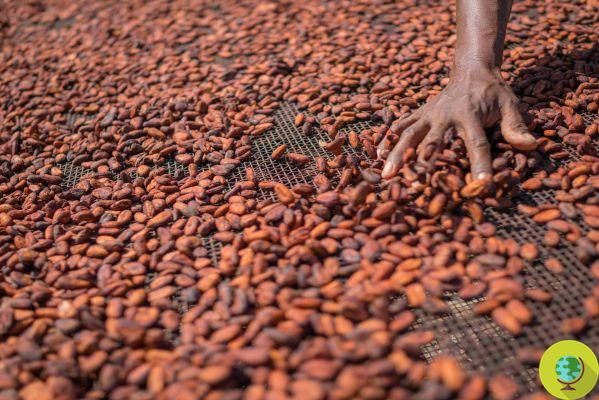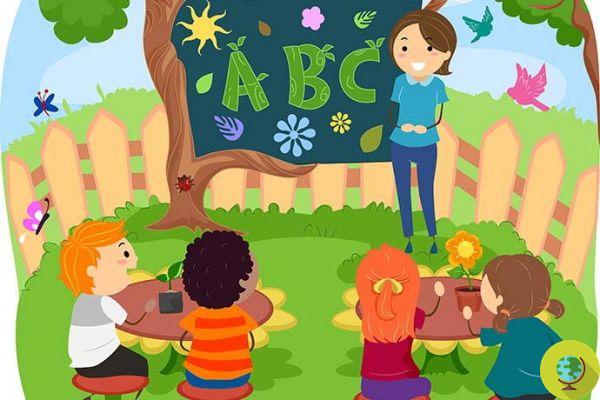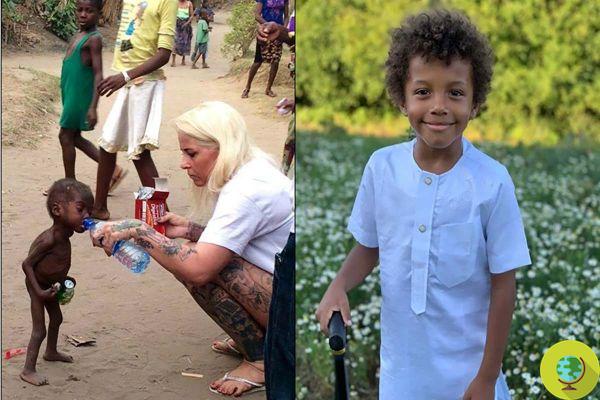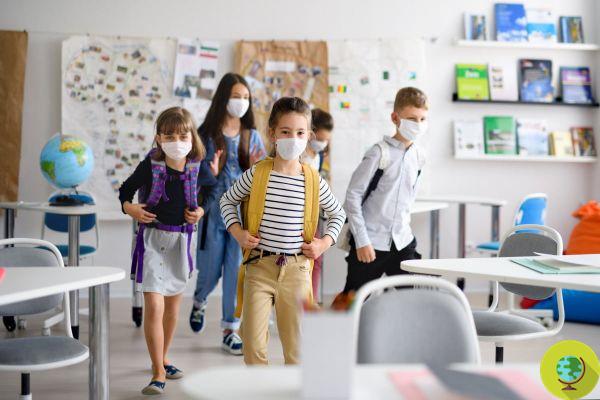Kidnapped in their homes in the middle of the night to dismember their limbs and sell them to sorcerers as ingredients to use in potions. The silent massacre of African albinos continues
Kidnapped in their homes in the middle of the night to dismember their limbs and sell them to sorcerers as ingredients to use in potions. The silent massacre of African albinos continues. Since 2014, as many as 69 people with albinism have been attacked in Malawi and at least 18 of them have died: this was revealed by a report released by Amnesty International, which sheds light on the violence and discrimination to which albinos are subjected in the African country.
Over the past two years, attacks on albino people have increased in Malawi. Albinos are sought after for their body parts, because, due to superstitions that still find space among the population today, there is a widespread belief that they have Magic powers and that bring good luck, precisely because of the absence of pigments. Such beliefs fuel a grisly black market, as skins, bones, limbs and other body parts of albino people are sought after in magical rituals or as "ingredients" in potions.
READ also: African albino children: from persecution to a new life, thanks to prostheses (PHOTO)
And the victims are very often the children, both because they are more vulnerable and because of their innocence: a feature that would make potions and magical rituals "based" on parts of their body more "effective". Albino women, then, also run the risk of being victims of rape and sexual assaults, due to the belief, sadly widespread in the African country, that having sex with an albino person would cure AIDS.
In addition to exposing them to violence, mutilation and killings - carried out by criminal gangs which, in some cases, also include relatives and family members -, the physical appearance of people with albinism makes them victims of various forms of discrimination, which can range from verbal abuse to social exclusion. And the problem, unfortunately, is not limited to Malawi alone: albinos are victims of attacks and aggressions also in Tanzania, Kenya and Burundi.
For this reason, the UN has established the International Day of Awareness on Albinism, which is celebrated on June 13, hoping to raise awareness of political classes and public opinion, especially in South-East African countries, where persecutions are more frequent. But the problem of respecting the human rights of albinos still seems far from a solution.
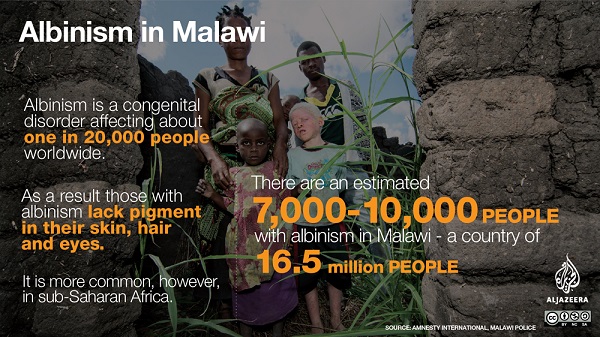
According to Amnesty International, in Malawi there are between 7.000 and 10.000 people affected by albinism: men, women and children who live in fear and who risk being kidnapped, maimed and killed in every moment of their existence. The local authorities and governments have repeatedly condemned the attacks and violence against them, but all the measures taken to stem the phenomenon have proved too weak: on the other hand, homicide investigations too often end up in nothing. , the penalties imposed on the arrested and judged assailants are negligible and impunity seems to reign supreme.
To push the Malawian authorities to do more in defense of the albino population, Amnesty International launched the Stop ritual murders of people with abinism petition, addressing it to the President of the Republic, Arthur Peter Mutharika. With the hope that, as soon as possible, a solution will also arise from a greater awareness of the problem.
To sign the petition, click here.
Lisa Vagnozzi
Photo credits




